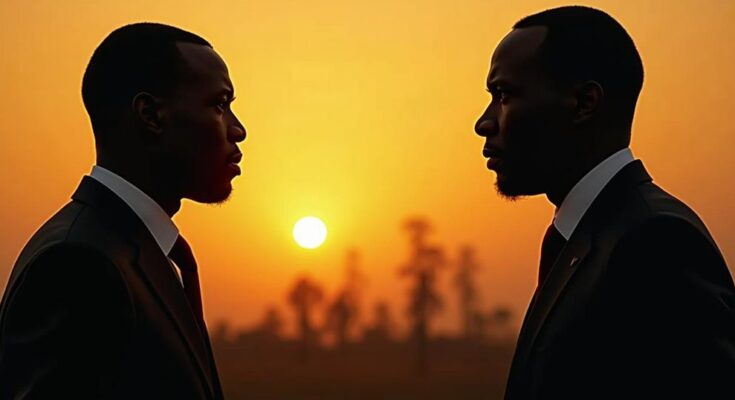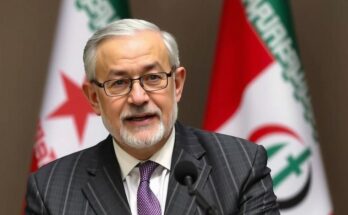Rwandan Foreign Minister Olivier Nduhungirehe stated that the Congolese Foreign Minister refused to sign a deal to alleviate the M23 conflict, which has displaced over 1.7 million people. The negotiations, which took place in late August, proposed coordinated actions against the FDLR and adjustments to Rwanda’s military measures, but disagreements over the timing of these actions resulted in a stalemate before the scheduled signing on September 14.
On Saturday, Rwandan Foreign Minister Olivier Nduhungirehe conveyed that his Congolese counterpart did not sign an agreed-upon deal aimed at mitigating the ongoing conflict involving the M23 rebel group in the eastern Democratic Republic of Congo. This conflict has resulted in the displacement of more than 1.7 million individuals since its escalation in 2022. The Tutsi-led M23 insurgency has faced accusations from Congo, the United Nations, and other entities, alleging support from Rwanda, including the deployment of military troops and supply of weapons. Rwanda has refuted these allegations, describing its military actions as defensive and countering that Congo collaborates with the Hutu militia group, the Democratic Forces for the Liberation of Rwanda (FDLR), which has perpetrated violence against Tutsis in the region. Both nations were engaged in negotiations in late August to address the escalating humanitarian crisis resulting from the conflict and to avert the potential for wider regional hostilities. Minister Nduhungirehe reported to Reuters that during the discussions, a consensus was reached, with attendees—including the Congolese head of military intelligence—endorsing a strategic plan that outlined measures to disarm the FDLR prior to Rwanda relaxing its defensive postures. Despite this preliminary agreement, which was scheduled for ministerial endorsement on September 14, the Congolese minister expressed opposition to adopting the report, stating that the proposed actions should not be sequenced but should occur simultaneously. At a summit in France, attended by both Congolese President Felix Tshisekedi and Rwandan President Paul Kagame, French President Emmanuel Macron suggested a tripartite meeting, although separate consultations ultimately transpired between the leaders.
The M23 conflict in the eastern Democratic Republic of Congo represents a significant aspect of the region’s historical tensions involving ethnic groups and armed factions. Since its resurgence in 2022, the M23 group, primarily composed of Tutsi fighters, has been implicated in exacerbating an already severe humanitarian crisis. The claims of Rwandan support for M23 further complicate the bilateral relationship, as Rwanda is accused of intervening in Congolese matters. Conversely, Rwanda accuses the Congolese government of engaging with the FDLR, a group responsible for violent acts against Tutsis, thus perpetuating instability in the region. Recent negotiations sought to alleviate the situation, yet key disagreements hindered progress towards a formal agreement.
In summary, the refusal of the Congolese Foreign Minister to sign the initial agreement to address the M23 conflict signifies ongoing tensions between Rwanda and the Democratic Republic of Congo. These dynamics are critical in understanding the broader implications for regional security and humanitarian conditions. The absence of collaborative moves to neutralize armed factions risks further destabilizing an already vulnerable area and worsening the humanitarian crisis affecting millions.
Original Source: www.usnews.com




